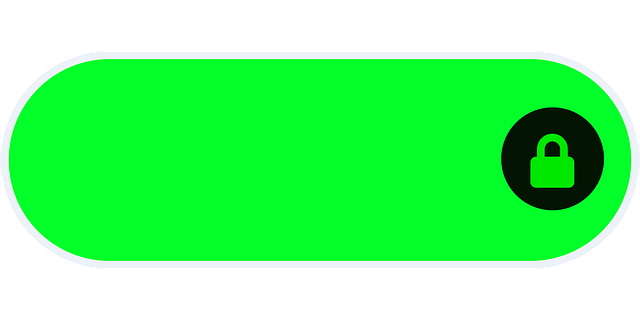Meta descriptions are short summaries of how your web page will appear in search results.
So, what should we pay attention to when writing these descriptions?
First of all, it is essential to make a remarkable start.
You should use words that will attract the reader’s attention in the first sentence.
It is also important to use short, clear and fluent language.
Imagine how effective the first sentence can be when you open a door to let you in!
Keywords increase your visibility in search engines.
However, it is critical to place these words in a natural way.
Your description should be like a piece of jewelry; sparkling but understated!
By choosing words that match users’ search intent, you increase your chances of attracting them to your page.
A good meta description should offer something to the reader.
You can make your description more interesting by using a metaphor.
For example, saying, “This article invites you on a mind-opening journey” can arouse curiosity in the reader.
Like providing the right map for a good journey, an effective meta description should take the reader to the right place.
Finally, adding a call to action allows the reader to take action.
You can use phrases like “Explore now” or “Find out more” to draw the reader to your page.
It’s like a clue; a beacon of light that leads to curiosity.
Remember, a well-written meta description not only attracts your potential visitors, it keeps them on your site!
Meta Descriptions: The Key to SEO Success!
Your meta description is limited to 150-160 characters, so every word counts.
Choose words that describe you carefully.
For example, instead of saying “Best florist”, something like “Local fresh flowers, fast delivery!” will attract more readers.
Keywords are one of the most basic ways to increase your visibility in search engines.
But be careful!
Integrate keywords in a natural way.
Otherwise, your meta description can look artificial.
Users will immediately sense this and your click-through rate will drop.
Creating a meta description that calls the reader to action is an excellent way to increase click-through rates.
Phrases like “Explore now” or “Shop now” are very effective at driving users to your site.
Think of it as opening a door and inviting them in.
Every meta description should reflect your brand.
Avoid repetitive or mundane phrases.
Readers are looking for novelty; to impress them, you need to be unique and attention-grabbing.
A short but striking narrative will help you stand out from your competitors.
Remember, meta descriptions are small but effective tools.
When used correctly, they can form the cornerstones of your SEO success.
Short but Concise: How to Write Effective Meta Descriptions?
Meta descriptions are small but effective pieces that increase the visibility of your web pages.
So, how should you write these descriptions?
First, pay attention to the word limit.
It’s usually best to stay between 150-160 characters.
But why so short?
Because search engines usually show text of this length.
If your description is too long, important information can be lost.
Another important point is to summarize the content.
Your meta description should clearly express what your page is about.
The reader should be attracted by this description in search results.
In other words, you should make sentences that answer the question “What will I find on this page?”.
For example, for a recipe page, “A delicious pizza recipe! Prepare it in just 30 minutes.” can be very interesting.
Using keywords wisely is also essential.
Place your targeted keyword naturally in your description.
But beware!
Avoid keyword stuffing.
Your writing should flow; otherwise it can become off-putting for both the user and the search engines.
Adding a call to action is also a great strategy.
Phrases like “Explore now!” or “Try this recipe!” encourage the reader to click.
The goal here is to get the user to take action and engage with your page.

Finally, be original and eye-catching.
Each page has a different story, so avoid repeating your descriptions.
Writing short, clear and engaging meta descriptions plays a big role in the success of your web page.
Remember, first impressions always count!
Increase Click-through Rates with Remarkable Meta Descriptions
Meta descriptions are one of the first elements that attract users’ attention on search engine results pages (SERPs).
So, why is it so important?
Because a good meta description not only increases your click-through rates, but also provides clues to the user about the content of your page.
Remember, taking a unique approach is essential to stand out among your competitors in search results.
When writing an attention-grabbing meta description, it is very effective to use sincere and impressive language.
Leaving a question mark in the reader’s mind makes them curious and more likely to click.
For example, phrases like “Don’t pass by without trying this method!” can immediately direct the reader to the content.
Placing keywords wisely is beneficial for both search engines and users.
But be careful not to overdo it with keywords; you should keep the text in a natural flow.
Phrases like “The most effective tips are here!” can also clearly communicate to search engines what you are offering.
Ideally, your meta description should be between 150-160 characters.
This provides enough space to grab the reader’s attention and is optimized for search engines.
Keeping it short and concise allows users to get information quickly.
Finally, don’t forget to include phrases that call readers to action.
Phrases like “Discover now!” or “Find out now!” encourage the reader to click.
Remember, your meta description is not just information, it’s an invitation!
Strengthen Your Meta Descriptions by Skillfully Using Keywords

Meta descriptions play a critical role in attracting users’ attention in search engines.
So, how can you strengthen these descriptions?
This is where the skillful use of keywords comes into play.
Keywords are like a magic wand to make your content stand out in search results.
But how should you use them?
Here are some tips!

First, it is important to identify the words your target audience will use when searching.
You can use keyword research tools to find relevant keywords.
However, it’s not enough to just choose popular words; they also need to be relevant to the content.
For example, if you are writing about a yoga studio, you should include specific terms like “yoga classes”, “meditation”, etc.
You should use keywords naturally in your meta description.
This means placing the words without breaking the flow of your description.
For example, a sentence like “You’re in the right place for the best yoga classes!” both includes your keyword and engages the reader.
Also, don’t forget to use emotional language to grab users’ attention.
Meta descriptions are usually limited to 150-160 characters.
Therefore, it is imperative to get your message across clearly.
By using short but effective sentences, you can arouse readers’ curiosity and increase click-through rates.
A phrase like “Discover great yoga techniques for beginners!” both informs and attracts attention.
Finally, keep up with changing trends and user expectations by regularly updating your meta descriptions.
Providing up-to-date and fresh information also attracts the attention of search engines.
Remember, users are always on the lookout for new and engaging content.
It’s not difficult to strengthen your meta descriptions by skillfully using keywords.
Get creative and give your readers an unforgettable experience!
The Way to Influence Users: Understanding Audience in Meta Descriptions
Conducting an Audience Analysis is the first step to creating an effective meta description.
Users can feel lost in the endless ocean of the internet.
Understanding what they want and what questions they have will put you one step ahead.
For example, if you are addressing a young audience, your language should be dynamic and fun, while if you are writing for a more professional group, seriousness should be at the forefront.
Making an Emotional Connection is a great way to grab users’ attention.
Appeal to readers’ emotions by using short but powerful phrases.
For example, a sentence like “Take a step to plan the vacation of your dreams!” can increase people’s curiosity.
Using short and catchy language is a great way to grab their attention.
The correct use of keywords is vital for SEO.
However, the important thing here is to present these words in a natural flow rather than placing them artificially.
For example, instead of “Best movie recommendations”, “Which movie to watch? Here are the best recommendations for you!” you can attract the user more.
Strengthen your meta descriptions by understanding your audience and appealing to their emotions.
A good meta description will not only show up in search results, but also mobilize users.
Frequently Asked Questions
What should be the length of the meta description?
A meta description is like a short summary that appears in search engine results.
It should usually be between 150-160 characters.
This length is ideal for both attracting users’ attention and for search engines to provide an optimized view.
What is Meta Description?
A meta description is a short description that summarizes the content of a web page and is visible to search engines.
It allows users to better understand your page in search results and can increase the click-through rate.
How to Write an Effective Meta Description?
An effective meta description should be short, concise and engaging to attract attention in search engine results and increase click-through rates.
It should include keywords, reflect the main theme of the content, and use language that will move the reader to take action.
How to Use Keywords in Meta Descriptions
Keywords help search engines by summarizing the content of your page in meta descriptions.
Correct and effective keyword usage increases your page’s visibility and attracts users’ attention.
Integrating keywords in a natural way increases click-through rates.
What is the Effect of Meta Description on SEO?
Meta descriptions can increase click-through rates by influencing how your page appears in search engines.
A well-written meta description attracts users’ attention and helps your page appear more in search results, thus positively impacting your SEO performance.